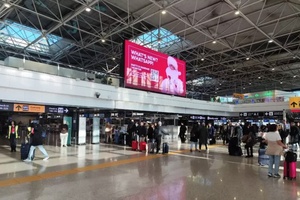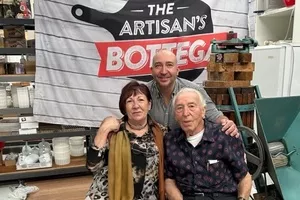Her analysis, based on the numerous clients of the Italian institution, also extends to the international community, including people from different cultural and linguistic backgrounds.
All over the world, vaccination campaigns have incurred both logistical and marketing issues, where the methods and timing of vaccine administrations have been imprecise, and people have been confused and wary of conflicting government advice.
The rampant misinformation on the effectiveness of each vaccine in circulation has been compounded by the difficulty of accessing accurate, clear and comprehensible information.
“The elderly members of the Italian community residing in aged care homes or needing home care have proved to be very open to getting vaccinated,” Ranieri said.
“Community associations were created in order to assist the first migrants with settling into a new country – dealing with its bureaucracy, overcoming the language barrier and finding employment – by providing accurate information on practically everything.
“First-and second-generation Italo-Australians have established a social network and a community institution that they trust, that they turn to in times of crisis, and where they go to seek correct information.
“For this reason, the clients of CO.AS.IT. in the Italian community have understood the importance of the COVID-19 vaccine, and aren’t plagued by doubt and misinformation.”
This is not the case with the new generations of immigrants, whether they possess permanent or temporary visas, as their only points of reference are perhaps groups on social media, where misinformation reigns.
“Often the new generations of migrants, in particular political refugees from countries in crisis, don’t have a stable social network like that of long-established Italian migrants, upon which they can rely for information and support,” Ranieri explained.
“These new Italians who’ve arrived in Australia for work or study reasons often don’t have a sense of belonging to the country, because they’re only abroad for a limited period, and they can return to Italy when they wish.
“This is why they don’t reach out to cultural institutions, where they can access accurate information and seek support.”
One of the problems that institutions such as CO.AS.IT. are addressing is the non-mandatory vaccination for workers providing home care for the elderly.
“This is creating many problems in the management of our approximately 5000 clients who depend on home care,” Ranieri said.
“We hope that vaccination will also be declared mandatory for workers in this category, as has been the case for employees in aged care homes.”




























